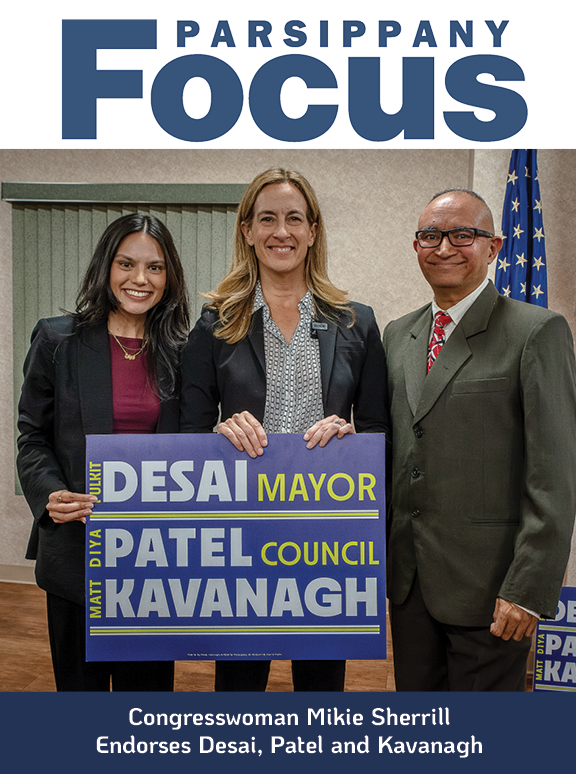PARSIPPANY — The Parsippany-Troy Hills Town Council recently passed a 4-1 vote resolution supporting the NJ Climate Superfund Act (S3545/A4696). This legislation aims to hold the largest fossil fuel corporations accountable for the damages caused by climate change by requiring them to cover the associated costs.
A top priority for New Jersey’s environmental movement and affected communities, the bill is modeled after similar legislation enacted in New York and Vermont. It applies the logic of the original Superfund Act—requiring polluters to clean up contaminated sites—to the climate crisis. While New Jersey’s revenue projections are not yet available, New York’s version is expected to rise to $3 billion annually over the next 25 years.
Parsippany was the second municipality in New Jersey to pass a resolution supporting this bill, and the first was in Morris County.
“We are happy to support this legislation; it is the right thing to do,” said Parsippany Council President Paul Carifi.
“I was very happy to support this resolution. We must protect our environment, not only for us but for our children, grandchildren, and future generations. Any entity that pollutes should be held accountable for any damage caused. It is unimaginable that a person in their right mind would not vote to support this resolution. It certainly makes you wonder why they would not want a clean environment. I’m glad most of our council voted to support this (4 votes to 1),” said Parsippany Council Vice President Frank Neglia.
“I am pleased that Parsippany, in a bi-partisan effort, has supported this resolution to enact a New Jersey Climate Superfund. I hope to see other municipalities follow suit in this important legislation. This bill will allow municipalities to make the repairs and adaptions that must be enacted to address climate change impacts without burdening their taxpayers. The passage of this bill in NJ and other states demonstrates the growing necessity for states to address climate issues locally. The impacts of climate change are increasing yearly and rapidly becoming one of the most significant issues of our time. These costs for remediation and adaptation are estimated to reach one-third of global GDP by 2100. No governmental organizations can afford such costs, and the impacts will be devastating. The Los Angeles wildfires were exacerbated by climate change, and there is no reason a similar disaster could not happen here. The added costs from climate impact all of us and affect our health and quality of life. This bill will help municipalities maintain a healthy environment in conjunction with other approaches and regulations. I hope more towns follow suit as we are all burdened with these costs,” said Council Member Judy Hernandez.
Ken Dolsky, a climate activist and Parsippany resident, stated, “I applaud the township’s leadership in being one of the first municipalities to quickly pass a resolution supporting the NJ Climate Superfund Act. This act is consistent with product liability laws and the “polluter pays” principle. Recent studies have shown the expected cost of climate change to increase from 2% of global GDP to over 30% by 2100. A study in New York estimated the cost at over $65,000 per household (cumulatively) by 2050. Even now, the costs of property insurance are escalating much more rapidly. It is not unreasonable to estimate that New Jersey could receive about $50 billion over time. While this bill by itself is not a cure for climate change, it will help Parsippany deal with costs such as flood protection and remediation, storm recovery, building weatherization, water/sewer upgrades, toxic lake algae blooms, township property insurance, and many other costs that would either fall completely on taxpayers or go unaddressed.”
“The Climate Superfund Act addresses the classic problem of not holding companies accountable for the external costs of harmful products such as toxic waste dumping and air pollution. While people may find it desirable to use these products, they also deal with the costs to their health (such as cancer and asthma). These costs should be included in the production and use of these products to help us make better decisions leading to a healthier planet. Economics is not a science but a political decision, and no economic interest should ever be, nor allowed to be, above the reverence for life or treated as if it is somehow the price of progress. I appreciate the town council’s support for this principle,” said Nicholas Homyak, Parsippany resident and activist.













